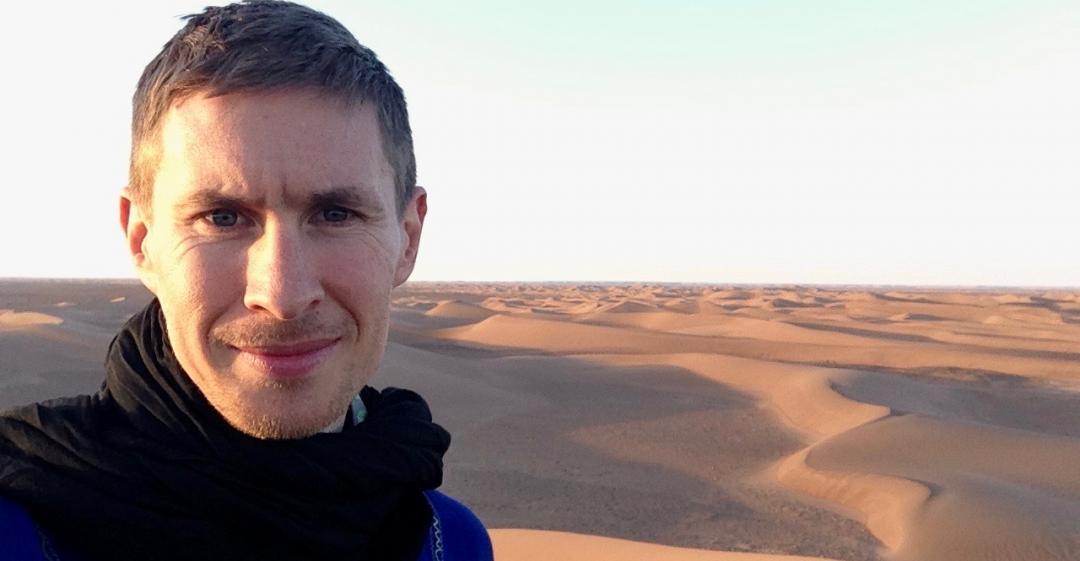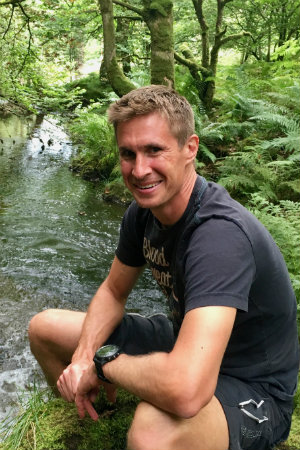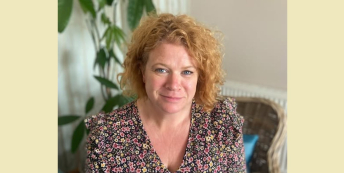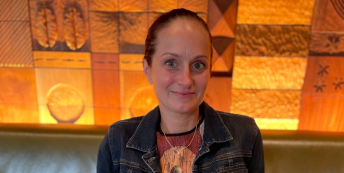“The pressure was crushing me.”

What work were you doing previously?
I'd been a geography teacher for 12 years.
What are you doing now?
I'm still teaching, but in different ways.
I'm working with a specialist tour company, helping them run outdoor-based school trips overseas. I'm doing some online geography tutoring and educational writing, and I'm also a non-teaching head of year in a secondary school.
Why did you change?
I'd moved to a new school to take up a Head of Department role, which was something I'd always wanted to do.
The school was local, and I already knew some of the people who worked there, so on paper it seemed like a great career move. But unfortunately, it didn't work out as I'd planned.
The school and my colleagues were very organised and systems-focused, but I've always been something of a creative improviser. I felt like a square peg in a round hole, and I could see that the role wasn't really suited to my skills.
This feeling was compounded about three months into the role, when I had to take a Myers-Briggs personality test as part of my training.
The other department heads all came out as linear and methodical types, while I stood on my own as an ENFP – someone who enjoys making it up as they go along. I just thought, “I'm doomed”.
Meanwhile the workload, as I tried to get to grips with new systems and procedures, was overwhelming. I felt like I was constantly chasing my tail.
Soon I was working up to 80 hours a week. I hardly saw my family, and the pressure was crushing me. I was starting to give my life completely over to my job.
When was the moment you decided to make the change?
For me, teaching should be about relationships and creativity, but I had no time or scope for that any more.
Instead, I felt like I was constantly spinning plates.
The stress took its toll on my mental health, so much so that I decided to hand in my notice without any back-up plan or new job to go to.
At the time I was the sole breadwinner in our house, and we had three children under the age of ten. Luckily, my wife was incredibly supportive.
How did you choose your new career?
At first, I had no intention of stepping into a classroom again. I thought “I'm done with this”.
I felt I'd exhausted other career options in teaching, such as working internationally. I looked at a job in Hong Kong, but as I mulled it over with my wife, we realised that trading our lives in for the same classroom pressures didn't make sense.
I really enjoy being outdoors. I'm a mountain bike instructor, which is a qualification I'd had for a few years, so I had an early vision of opening a bike shop somewhere.
However, when I took some time to focus on my motivation and priorities, I felt strongly drawn towards helping troubled young people, listening to them and working with them to help find solutions to their difficulties. I thought about combining that with teaching outdoor skills.
From there, I found a non-teaching head of year role in a secondary school. I also reached out to a tour company that runs outdoor-based school trips in Iceland. They offered me some contract work, and I'm doing some tutoring and writing to supplement my income.
Additionally, I've started a part-time master's degree in psychology, and I intend to follow that up with an educational psychology doctorate.
It's all about building a foundation for my vision, which is to combine psychology with my teaching experience and outdoors therapy, and create a niche for myself.
Are you happy with the change?
Yes. I'm still on my career change journey, but there's a definite trajectory, with a clear goal at the end.
I'm still working long hours, but I'm enjoying what I do a lot more, even when I've only had six hours' sleep! I've also implemented some simple well-being rules, such as not checking emails once I've left work for the day.
I've learned more in my non-teaching head of year role over the past few months than I would have done over years in my previous school. I've dealt with the police and social services, and I've had to physically restrain students. My role is to step in and become part of the solution, which hasn't always been easy, but it's also very rewarding.
These days my mind is much freer, and I'm always thinking “I wonder if…?” about the future, such as the possibility of working with children who have been affected by international conflict or disaster.
I've got so many ideas – I'm always scheming something, and now I feel like I have the skills and confidence needed to make new ideas possible.
What don't you miss?
I'm still in teaching, but I don't miss the sense of crushing obligation I used to feel.
I realise now that my job should serve me, not the other way around. If it all gets too much, then there are always other jobs.
How did you go about making the shift?
Just before I left my old job, I did a Google search and discovered Careershifters.
I read some inspiring stories on the website, and I sat down with my wife to discuss joining the Career Change Launch Pad programme.
I knew I needed some help thinking 'out of the box'. I wanted to meet people who could help me open my mind and broaden my horizons.
It was the conversations I had during the programme that really helped me decide on what I wanted for my shift. I learned that gleaning as much information as you can from others is pivotal.
I chatted with a lot of people in the outdoors industry, and they helped me realise that I couldn't focus my career completely on that, as I'd only ever be one injury away from not working.
Also, I didn't know that a non-teaching head of year role even existed, until I spoke to someone who was doing that role herself.
How did you handle your finances to make your shift possible?
With no money coming in, the stakes were incredibly high.
But my wife and I were fortunate in that we did have an initial 'safety net' of savings. I really needed some additional income while I planned my shift, so I also did some work helping a friend, who is a tree surgeon.
These days I'm earning around a third of my previous salary as a Head of Department, which is one of the reasons why I keep on exploring options to supplement our income!
What was the most difficult thing about changing?
Not knowing where I was going to end up.
I'm quite impatient, and I wanted to see everything come together quickly.
It could sometimes feel over-indulgent, having conversations and exploring options but with nothing really moving, and I was always mindful of the pressure of not having a job. But you just have to remain open to possibilities, and stay patient.
What help did you get? 
My wife has always been incredibly supportive.
She's a lot more focused and rational than I am, so looking back, the fact that she agreed so readily to me leaving my job without a plan shows how bad the situation had become.
What have you learnt in the process?
Taking some time to focus on your priorities is important.
When I did this, I realised that I've always felt a strong responsibility to use my skills, qualifications and personality towards a purpose.
My 'aha!' moment came when I realised how much I wanted to work with troubled young people, and be their champion.
What would you advise others to do in the same situation?
Changing career is a journey rather than a quick fix, and it will take some time to evolve.
Sometimes you just have to be patient, and play the long game.
My shift still has a few more years to go, but it's a progressive and positive change. It's all about applying an open ethos and making the most of every opportunity.
David took part in our Career Change Launch Pad. If you're ready to join a group of bright, motivated career changers on a structured programme to help you find more fulfilling work, you can find out more here.
What lessons could you take from David's story to use in your own career change? Let us know in the comments below.



